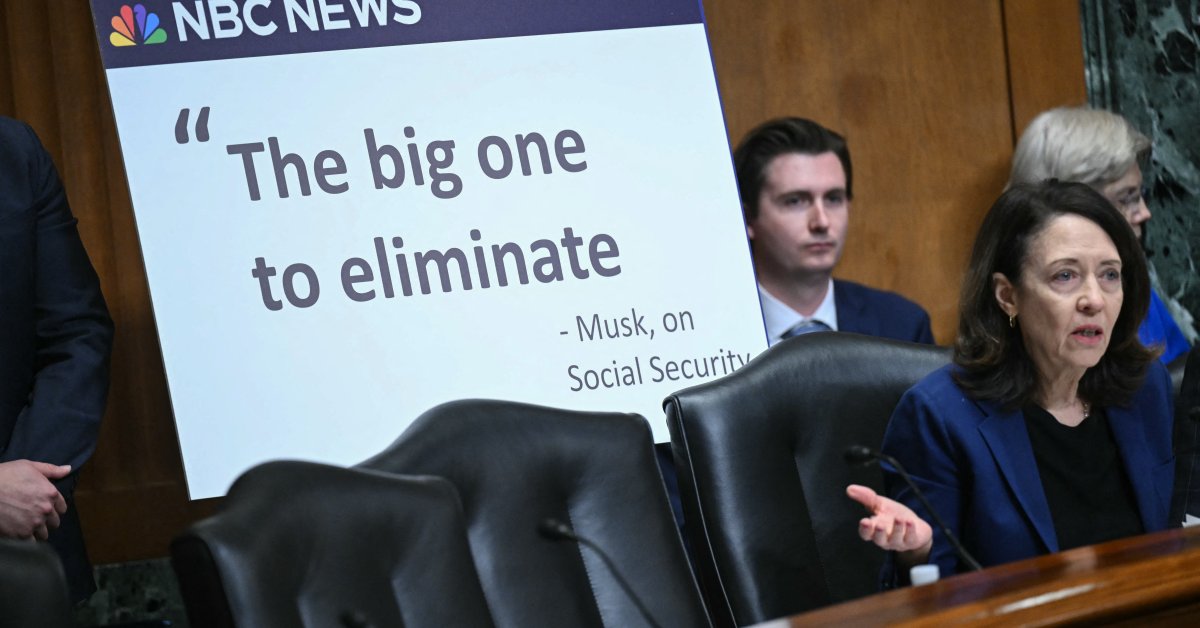Last week, Donald Trump posted a meme that hovered somewhere between a joke and a declaration of war. The AI-generated image—styled as a movie poster for an imaginary film titled “Chipocalypse Now”—depicted the President crouching in the foreground, wearing aviators and army fatigues. In the backdrop, the Chicago skyline is engulfed in flames as military helicopters swarm across a blood-orange sky. “I love the smell of deportations in the morning,” Trump wrote in the caption, hammering home the allusion to Francis Ford Coppola’s 1979 film Apocalypse Now. “Chicago about to find out why it’s called the Department of WAR,” Trump added.
Like so much else in the Age of Trump, this was politics as entertainment. Trump’s appeal has always rested on his ability to blur the two, leading many commentators to use Neil Postman’s Amusing Ourselves to Death to make sense of his rise. First published in 1985, the book warned that the threat to American democracy came not from state repression, but from a culture distracted by amusement. He blamed television for this shift, which shortened attention spans and turned politics into light entertainment. “When a nation becomes distracted by trivia,” Postman wrote, “then a nation finds itself at risk.”
That warning felt newly prescient after Trump’s first election in 2016. His administration weaponized distraction as political strategy; Steve Bannon famously pledged to “flood the zone with s–t,” overwhelming opponents with a relentless torrent of outrage and spectacle. For critics like Ezra Klein, the challenge of Trump’s first term became staying focused—separating the distraction from the substance—and Postman offered a compelling framework for doing so.
Now, with Trump well into his second term—and Amusing Ourselves to Death marking its 40th anniversary—it’s worth asking: Is Postman still a reliable guide to Trumpworld? While his insights may have illuminated Trump’s first term, Amusing is less effective at helping us make sense of his second.
In many ways, the book was a product of its moment. Postman completed it in 1984, the year America—like much of the world—had George Orwell on its mind. The arrival of “Orwell’s dreaded year” sparked renewed interest in his bleak predictions. Most concluded Orwell had gotten it wrong: the totalitarian nightmare hadn’t materialized, at least not in the U.S. But Postman, then a professor of culture and media studies at NYU, believed Americans were fixated on the wrong dystopia. In Amusing, he argued that the more prescient warning came not from Orwell but from another British writer: Aldous Huxley, author of Brave New World.
Read More: The Optimist’s Case for How New Technology Can Transform the U.S.
Both Orwell and Huxley imagined a future in which the masses were subdued. But while Orwell envisioned this happening through a repressive, all-powerful state, Huxley imagined something more insidious: people surrendering their freedom willingly, lulled into obedience by pleasure and distraction. In Brave New World, that sedation comes through soma, a state-issued narcotic that keeps its users blissfully distracted.
Postman believed that television played a similar role in modern life. By the 1980s, TV had eclipsed print as the dominant medium and reshaped how Americans consumed the news. A Roper survey from 1985 found that 64% of respondents got most of their news from television, compared with 40% from newspapers. Attention spans shrank, and networks adapted by turning news into fast-paced, image-driven segments. The shift accelerated in the late 1970s, as news divisions were restructured to prioritize profits and ratings, and a new generation of swashbuckling TV executives, such as Roone Arledge at ABC and Ted Turner at CNN, emerged.
The result was that news became more entertaining but shallower and less coherent. As serious debate faded, politics morphed into entertainment. “Americans no longer talk to each other, they entertain each other,” Postman wrote. “They do not exchange ideas; they exchange images. They do not argue with propositions; they argue with good looks, celebrities, and commercials.”
Postman was writing as America reelected a former Hollywood actor. Ronald Reagan leaned into his star power, filling his speeches with film references and syrupy slogans about “morning in America.” He also blurred fact and fiction, confusing movie plots with real events or parroting the latest conspiracy theory from the far-right John Birch Society. A consummate performer, Reagan delivered these untruths with such sunny authenticity that it was hard to call him a liar—a dangerous trend, as Postman pointed out: “Orwell feared a world controlled by fear and censorship,” he wrote. “The more immediate danger is that we surrender our attention willingly to trivial distractions.”
Amusing Ourselves to Death resonated during Trump’s first term, when spectacle generally seemed to override substance. Substantive efforts at policy reform—repealing Obamacare or the much derided “Infrastructure Week”—were usually sidetracked by scandals or social media spats. While adept at manipulating the news cycle, the Trump Administration seemed to have no strategy for harnessing these cycles of outrage into meaningful policy change.
But today, Postman’s framework feels less adequate as the Trump Administration now focuses less on ratings and more on wielding state power to suppress dissent and reshape institutions. Trump remains the entertainer-in-chief, but behind him is a disciplined cadre of right-wing ideologues, humorless figures who let him dominate the spotlight while they quietly rewire the American state. The endgame, such as it is, looks less like Huxley’s pleasure-drenched dystopia and more like Orwell’s authoritarian one.
Consider the role of the state.

Postman didn’t envision democracy being crushed from above. He feared a slow decay from within, a culture so distracted and disengaged that repression would be unnecessary. Why ban books, Postman asked, if no one bothers to read them? Americans, he wrote, were more likely to “dance and dream themselves into oblivion than march into it, single file and manacled.”
Today, banning books and policing curriculums are top priorities for Republicans. And single file and manacled is exactly how 238 Venezuelans were frog-marched into El Salvador’s prisons last March, expelled from the U.S. without trial. Over the past few months, masked ICE agents have arrested individuals in unmarked vans, the victims of blunt assertions of state power designed both to “trigger the libs” and divert attention from more inconvenient truths—like how deportations under Trump have remained comparatively modest; or how his administration’s signature legislative achievement is tax cuts for the wealthy. These are not distractions in Postman’s sense of passive entertainment. Instead, they are carefully crafted spectacles that rely on the aggressive deployment of state power. The distraction does not eliminate the need for state repression. It depends on it.
Read More: Trump Supporters Knew Exactly Who They Were Voting For
In the end, Postman’s book remains helpful but incomplete. Politics is often indistinguishable from entertainment. Many Americans still find Trump amusing, while the wider MAGA universe of influencers and podcasters are more interested in building media brands than shaping policy. Republicans, however, are now wielding state power with growing precision and ruthlessness. The threat today is not just cultural decay through amusement. It is the convergence of entertainment and authoritarianism—the fusion of spectacle and force. The danger we face is not Orwell or Huxley. It is both.
Sam Collings-Wells is a historian at the University of Cambridge. He is currently writing a history of distraction in the United States.
Made by History takes readers beyond the headlines with articles written and edited by professional historians. Learn more about Made by History at TIME here. Opinions expressed do not necessarily reflect the views of TIME editors.








